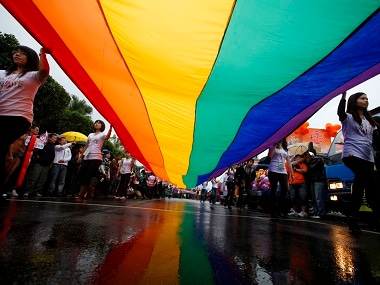On Thursday, Indian Army chief Bipin Rawat sparked a row when he declared that there was ’no place for homosexuals’ in the ranks of the armed forces. While the Supreme Court decriminalised same-sex relationships between consenting adults in September 2018, it seems as if for the ‘conservative’ army — Rawat’s own words — changes will not be in the offing anytime soon. Let’s examine the stand of some of the world’s major powers on homosexuals serving in the military: [caption id=“attachment_4347619” align=“alignleft” width=“380”]  Representational image. Reuters[/caption] United States The US military barred homosexuals from serving in the armed forces for a long time. The “Don’t Ask Don’t Tell” policy banned openly gay and lesbian personnel. But in 2010, then president Barack Obama signed the “Don’t Ask Don’t Tell Repeal Act” making way for spousal and family benefits for homosexuals who were married. A law subsequently came into force in 2011 preventing the discharge of personnel who identified as being homosexual. United Kingdom The United Kingdom lifted a ban on homosexuals serving in the armed forces in 2000. The country’s Ministry of Defence had in fact issued an apology in 2007 to all gay service personnel who faced persecution and discrimination before the ban was lifted. Phil Sagar, who ran the armed forces’ joint equality and diversity training centre, was quoted saying, “Of course we’re sorry for anyone who’s suffered personal trauma,” in a BBC Radio broadcast. Germany Germany’s armed forces banned homosexuals from serving until the year 2000. Today, tolerance towards all sexual orientations is considered part of German military duty. The German armed forces also welcome transgender personnel. In fact, Anastasia Biefang became the country’s first openly transgender military commander. Israel In Israel, homosexuals are allowed to join the armed forces. They serve in special units and are given additional rights, for example: the right to take a shower alone, if they so choose. New Zealand New Zealand topped the first ever global ranking of countries by inclusion of lesbian, gay, bisexual and transgender (LGBT) service members in the armed forces released by the Hague Centre for Strategic Studies (HCSS). It has been legal for persons of all sexual orientations to serve in the military since the implementation of the New Zealand Human Rights Act, 1993. Netherlands Netherlands sits at second position on the HCSS list, along with the United Kingdom. The Dutch military has allowed homosexuals to serve since 1974. India While the Supreme Court decriminalised same-sex relationships between consenting adults in September 2018, the country’s million-strong army and other armed forces are governed by their own laws. Unsurprisingly, there are no figures on homosexuals in the armed forces. Those found guilty of conduct of a “cruel, indecent or unnatural kind” under Section 46 of the Army Act, 1950, face up to seven years in prison. Section 45 of the Army Act, 1950, also talks about the “unbecoming conduct” of officers. The sections imply offences under the British-era Section 377 of the Indian Penal Code. But there is a ray of hope. In the recently concluded Winter Session of the Parliament, BJP’s Jagdambika Pal introduced a bill seeking amendments to the Army Act, 1950, the Navy Act, 1957 and Air Force Act, 1950 with a view to give equal rights and opportunities to members of the lesbian, gay, bisexual and transgender community to serve in the armed forces. With inputs from agencies
Let’s examine the stand of some of the world’s major powers on homosexuals serving in the military
Advertisement
End of Article


)

)
)
)
)
)
)
)
)



